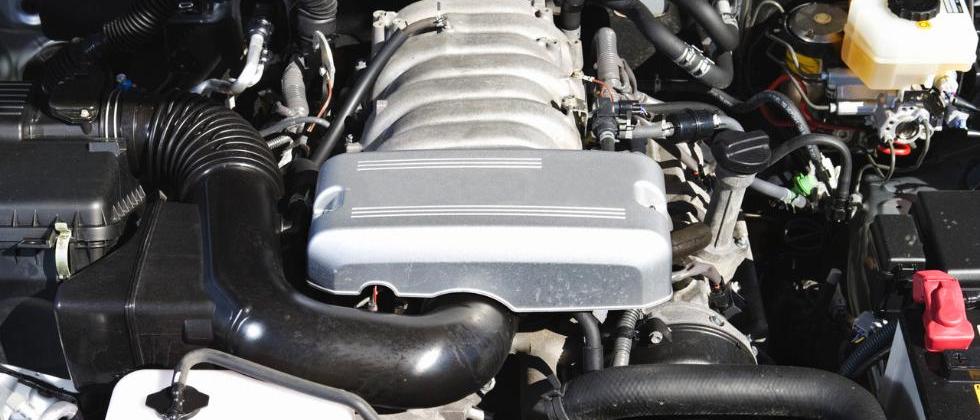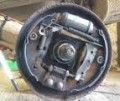
Brakes and Car repairs in our Norwich workshop
Brake specialist & Car repairs in Norwich Chris Baker Auto Services can undertake any type of repair on your vehicle. Discs, Pads, Brake shoes, Calipers,Cylinders, Master cylinder, ABS and brake pipes.
Car brakes are one of
the most important safety features on your vehicle. Every day, you press the brake pedal hundreds of times to stop a car that weighs as much as 2 tons. With every press of the brake pedal, you engage
a complex system that sends your instinctive movement from the pedal to the brakes located at each wheel. Maintaining your brakes requires good knowledge of the entire braking system on your
vehicle.
DID YOU KNOW
Driving with defective brakes can result in you being pulled aside by the police and subjected to a vehicle check. If the police officer determines that your brakes are defective then you may find yourself issued with a CU10 offence and facing a fine of up to £2500 as well as 3 penalty points to go on your driving license.
Hear are some of the common problems you might have with your brakes, and what could be causing them:
My brake pedal sinks right down when I hold my foot on it: when you apply the brakes, the vehicle may not stop or will need a long distance to come to a halt.
Possible reasons:
- Brake fluid is dangerously low and needs refilling
- Master cylinder needs replacing
- Air has got into the hydraulic system. Bleed hydraulic system to rectify problem
The Brakes Hardly Stop The Car: this time, when the brakes are applied the car takes ages to stop and barely does so. When stopped you need to keep your foot hard on the brake to keep the car from moving.
Possible reasons:
- Brake fluid is dangerously low and needs refilling
- Master cylinder needs replacing
- Air has got into the hydraulic system. Bleed hydraulic system to rectify problem
- Brake pads and/or brake shoes are worn out and need replacing.
The Brake Pedal is really hard to push down and braking is difficult: the brake pedal needs to be forced to apply. It’s hard and will probably just happen out of the blue, rather than build up slowly over time.
Possible reasons:
- Bad power brake booster
- Vacuum to the power brake booster isn’t working properly.
- Brake line is pinched and needs replacing.
- Something has become wedged under the brake pedal. Check it is clear and that floor mats are not getting stuck under the pedals.
The Brake Pedal Drops: The brake pedal makes the car stop when you need it to, but then slowly goes down to the floor. This may get worse the more the brakes are used, such as in heavy urban traffic and may also get worse over time.
Possible reasons:
- The brake shoes may be incorrectly fitted, of poor quality or be the wrong type completely.
- The brakes could be overheating due to dragging, sticking or worn components.
- The brakes could be overheating due to a restricted airflow, which can be caused by obstructions such as brake dust shields or the wrong wheel types.
- The brake fluid could be contaminated with water, or the wrong brake fluid might have been used. Replace with the right fluid.
- There could be a leak in the hydraulic system.
The handbrake won’t release: You might see smoke or smell burning. The rear wheels may be really hot. The car may feel like it is dragging when moving forward and/or roll easily in reverse. The handbrake moves up and down far easier than it should do.
Possible causes:
- The handbrake cables are frozen up and need replacing
- The handbrake needs lubricating
- There is a broken mechanism inside the rear brakes that needs checking.
Do remember that your handbrake is an integral part of your braking system and that if you are pulled over by police for a check, they will expect to be able to push your car while the handbrake is engaged and for it to not move.
For more help and advice on keeping your brakes in a safe condition, check your owner manual and the Highway Code. Information on defective vehicles can be found in the Road Traffic Act 1988. If you suspect that there is a serious defect with your brakes, then please take your car to be checked over by a professional mechanic at the earliest opportunity - it's not worth taking the risk.
BRAKE FLUID CHANGE
Most major vehicle manufacturers recommend that drivers should change their brake fluid at least every two years. This is because brake fluid is a hygroscopic fluid - meaning that it absorbs water over time reducing its effectiveness.
If the fluid is not changed before the water content reaches the 3% mark, the water brings down the normal boiling point of the brake fluid and air bubbles are created as a result. Once this happens, the brakes become ineffective and dangerous.
If that wasn't bad enough, a motorist probably won't even be aware that this has taken place because the braking system will appear completely normal until the brake fluid reaches the reduced boiling point - which usually occurs after braking heavily.
What happens next is this: the brakes take on a sponge-like feeling and don't work - so the car fails to stop. If the driver happens to be on a hill or driving along a motorway when this happens, the consequences don't even bear thinking about.
The only way to ensure that this doesn’t end up happening to you is to check that your brake fluid is changed at least every two years – preferably once a year. A mechanic can do this as part of your regular service, just mention that you want it done and they should be happy to oblige.




